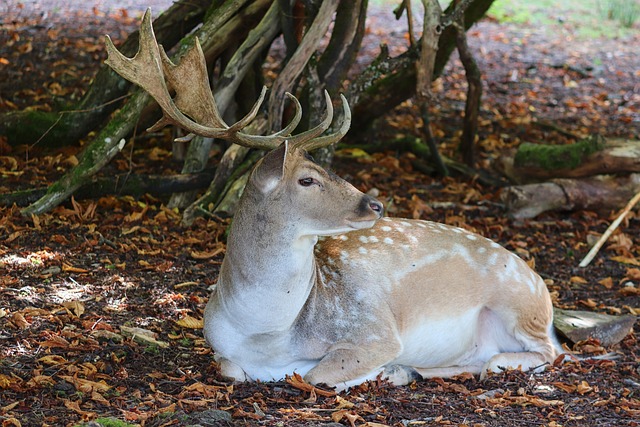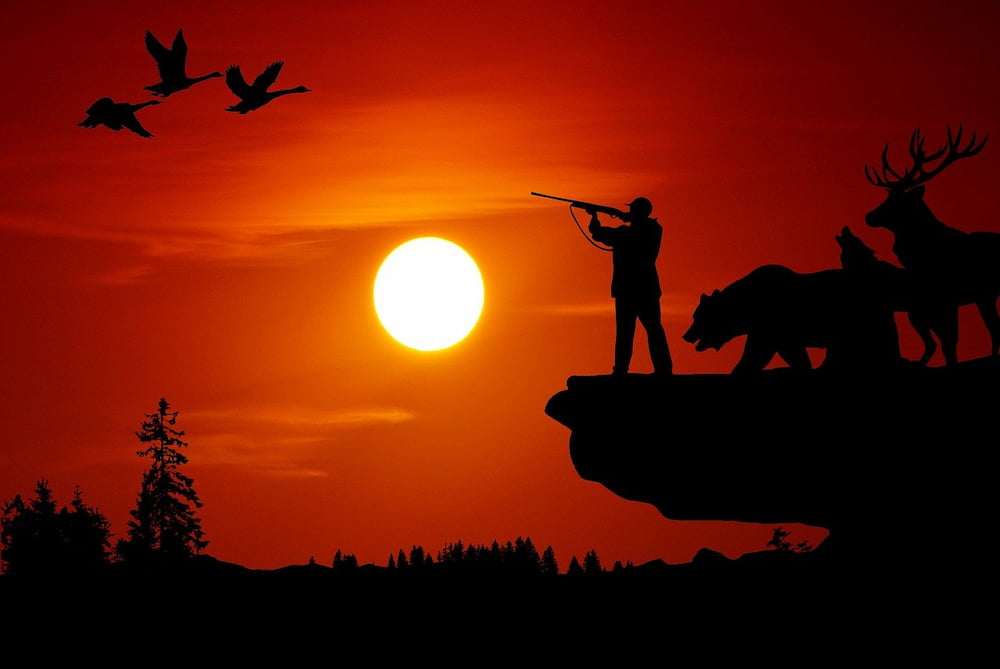In some places, hunting is a way of life for some people; they’ve grown up doing it, and it’s something that has been passed down from parent to child. Hunting is discouraged in some places, though. People consider it to be cruel, barbaric, or inhumane. It requires a detached, critical eye to examine both sides of the debate in order for someone to be truly objective in their evaluation of hunting.
Hunting has long been a source of food for humans, though there is debate over whether it is still appropriate. But, why is hunting good?
For more information, continue reading.
Table of Contents
Supports Conservation Efforts
For many conservation organizations, hunting is a significant source of funding. In fact, the money that hunters spend on permits, licenses, and equipment helps to finance a number of significant conservation programs. These initiatives support habitat preservation, the recovery of endangered species’ populations, and the carrying out of studies that advance our knowledge of wildlife.
The states or the federal government receive funds from hunting-related taxes for a number of purposes, such as enhancing wildlife habitat, managing and maintaining parks and wildlife refuges, and conducting surveys and research to determine the status of both game and nongame species. Because of this, hunters significantly aid in maintaining natural ecosystems.
Hunting-related taxes are a significant source of funding for conservation initiatives. The Wildlife Restoration Act of 1937 in the United States levied an excise tax on hunting supplies to pay for wildlife conservation initiatives. Numerous species of animals have benefited from the over 4 million acres of habitat that have been purchased with the money raised by this tax.
Population Control
For maintaining healthy animal populations, hunting is also crucial. Our human footprint has negative side effects on wildlife as urban areas become more overpopulated and as cities expand.
Unfortunately, the natural balance of predators and prey is upset as we encroach on wildlife. Due to the lack of natural predators to control their population growth, some animal populations experience a significant increase. For instance, there would be fewer food resources if there were too many deer. Malnourished and unwell deer may result from this.
The same is true of an abundance of predators. Deer and other herbivorous animals will have lower populations if there are too many predators. As a result, the ecosystem’s natural balance may become unstable. The coexistence of all species depends on the preservation of balance.
Economic Value
In any thriving industry, money is always a key component. The same is true for hunting and fishing. The U.S. receives $887 billion annually from consumers who spend their hard-earned money on outdoor activities. economy. Each year, this generates more than $125 billion in tax revenue. 7.6 million Americans are employed by the industry itself.
The numbers are still mind-boggling even if we specifically separate the two industries. An estimated 483,000 Americans are employed in the hunting and fishing industries, which together generate more than $63.1 billion in retail sales annually.
Hunting Combats Poaching
Poaching is when individuals hunt or catch animals on unlicensed land. It also includes species that are killed outside of their designated hunting season or species that are completely prohibited from hunting.
The first line of defense against the poaching and waste of wild game is the hunter. Hunters are essential in the fight against poaching because game wardens can’t monitor every square inch of land.
Since there is a reason that hunting and fishing regulations exist, true hunters uphold and obey them. By doing so, animal poachers kill fewer animals in an unethical and illegal manner. To protect both hunters and wildlife, hunting regulations and seasons are established.
Benefits All Wildlife
Hunting can actually be beneficial for all kinds of animals, despite the perception among some people that it poses a threat to wildlife. For instance, properly managed deer hunts aid in regulating deer populations, which can stop them from destroying habitat and vying with other species for food. Hunting can also aid in lowering the number of predators in a region, which may benefit prey species.

Sourcing Your Own Food
Many opponents of hunting bring up the fact that they can still purchase meat at their neighborhood markets and grocers. Thus, they believe that hunting is not necessary. Many of these critics, however, fail to take into account the fact that killing your own food is arguably much more unethical than raising livestock for industrial purposes.
Numerous meat products used in mass production are obtained using cruel methods. A lot of times, the animals are only alive to be eaten in the future. The life of a hunted animal, in contrast, is much better and more free in its natural environment. Additionally, if they are killing it themselves, hunters are aware of the source of their next meal. Additionally, natural wildlife that is personally harvested during a hunt contains no additives, no synthetic dyes, and no hormones.
It’s okay if you don’t like hunting. But hopefully after reading these five arguments, they’ll recognize that there are also a number of advantages. Conservation, wildlife, and consumers can all benefit from hunting. However, these five advantages of hunting and fishing are merely a sample. But it’s a good start.
Contributes Greatly To The Economy
In the US, it is estimated that hunting generates over $25 billion annually. The sale of hunting supplies, licenses, and permits are some of the sources of this money. As a result of the fact that many hunters opt to stay in campgrounds or lodges while they are on their hunts, the hospitality sector is boosted.
Numerous jobs are also supported by the money made from hunting. Over 1 million people are reportedly employed in jobs directly connected to hunting in the United States. This covers work in the manufacturing and retail sectors as well as in the travel and hospitality sectors.
Control Invasive Species
There are invasive animal species that devastate regional ecosystems in many parts of the world. These animals frequently lack natural predators, which allows them to spread and multiply quickly. This may cause native animal and plant populations to decline and disease to spread more widely.
In some circumstances, hunting can be used as a tool to manage invasive species. For instance, the state of Florida has been trying to reduce the number of Burmese pythons by allowing hunters to kill them. Over 3,000 pythons have been taken out of the Everglades since the program started in 2013.
Natural And Humane
Hunting is regarded as an evil and inhumane activity by some. But it’s crucial to keep in mind that hunting is a natural activity that has existed for thousands of years. When compared to letting an animal die of starvation or disease, hunting is frequently more humane.
Moreover, there are numerous humane ways to kill animals available to contemporary hunters. Most of the time, hunters use firearms or bows and arrows to swiftly and humanely dispatch their prey. Various tools, such as captive bolt pistols and electric prods, can be used to ensure that an animal is instantly killed.
Fosters A Respect For Nature
Hunting enthusiasts frequently have a great respect for the natural world. They appreciate the value of conservation and frequently participate actively in campaigns to safeguard the habitats of wildlife. This appreciation of the outdoors can result from this reverence for nature, which is advantageous for all kinds of wildlife.
Hunting Is Safer Than Other Sports
Statistics show that one of the safest pastimes is hunting. When compared to 28 other popular sports, hunting with a gun has a lower injury rate than golf, volleyball, baseball, wrestling, and tackle football, according to hard data gathered by the National Shooting Sports Foundation. Hunting is also the third-safest sport overall. This is probably in large part because younger hunters must successfully complete accredited firearms and bowhunter education courses. An excise tax on firearms, ammo, and archery supplies is paid for these courses entirely by hunters.
Dedicated Participants
In order for wildlife managers and biologists to assess the condition of ecosystems, hunters play a crucial role by providing vital survey data from the field. Hunters count wildlife, fill out questionnaires, stop at big game check stations, report bands, provide details, and even provide biological samples from captured game animals and birds for conservation agencies and universities.
Helps Feed The Hungry, Homeless, And Others
Through the Nebraska Game and Parks Commission’s Hunters Helping the Hungry program, deer hunters in Nebraska have voluntarily donated tens of thousands of pounds of lean, delicious venison to assist in feeding those in need over the past ten years. There are laws in place that allow an individual hunter to legally taken game to another person who wants it with proper documentation, such as through the online Deer Exchange program run by the Nebraska Game and Parks Commission.
Hunting Is Part Of Our Rich Heritage
Our species has engaged in the practice of hunting for thousands of years. Many people take great pride in this tradition, which has been passed down from generation to generation. Hunting can help us understand our place in the world and help us feel more connected to our ancestors.
Hunting Is Not Wild, Uncontrolled Savagery
In the past, hunters have set their own restrictions. The North American Wildlife Conservation Model, the only one of its kind in the world, was created by hunters and anglers in the middle of the 19th century. These hunters understood that restrictions needed to be put in place so that they could manage wild habitats and protect wildlife that was quickly going extinct. In their respective hunts for game animals and birds today, hunters are subject to a variety of laws, orders, and regulations.
Read about Is Hunting A Sport?


